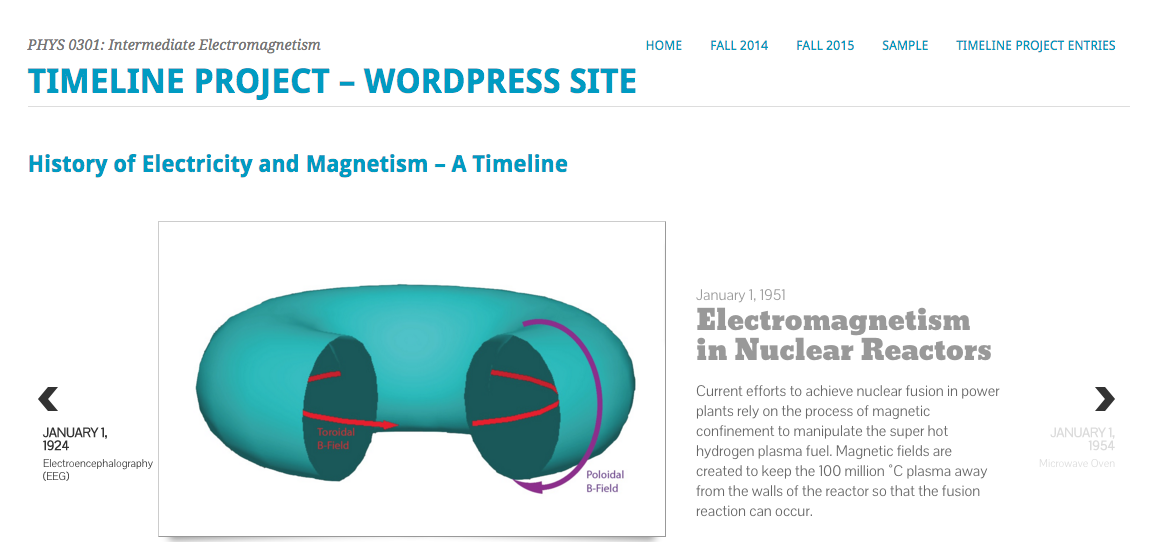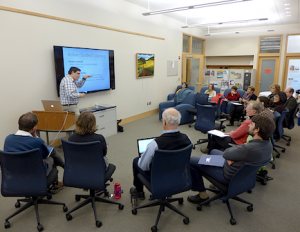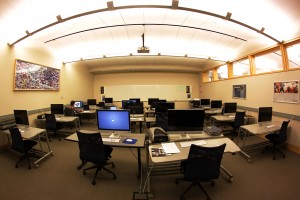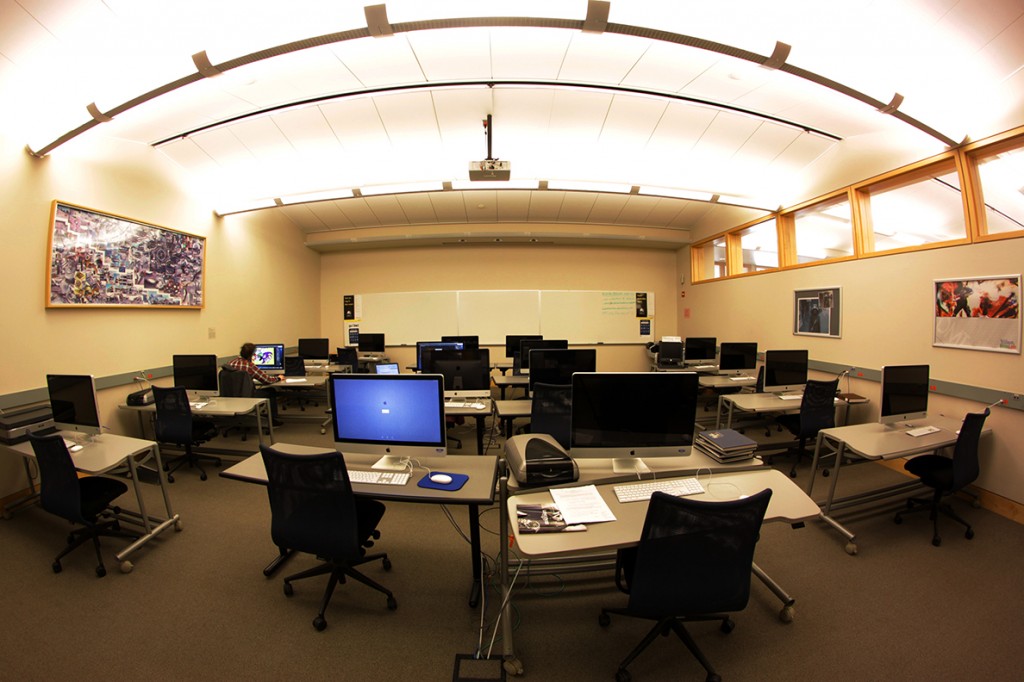Over the course of the summer the library employs, trains, and mentors students as they assist faculty with various digital projects. If you are interested in receiving assistance with a digital project this summer whether curricular or research related, we’d like to hear from you!
If you have any interest in participating, please send an email to hstafford@middlebury.edu with all the information you currently have available about the project that you’d like to pursue (for example, a general description or interest in a conversation about an idea). We will use this information to determine the number of students to recruit as well as the technical and academic skill sets needed for the projects. In addition, it will help us match your project with a staff mentor and a student.
Past projects have included:
- Conversations and planning around innovative ideas you may have for classroom projects, and/or using digital methods in your scholarship and the scholarship of your students.
- One on one instruction in a variety of software applications, including, but not limited to: image and document creation (including posters and diagrams); audio (podcasting, voiceovers); video (digital stories, other video applications); digitization of audio and video, and social software (blogs, wikis, LMS).
- Consultations to discuss what is possible, and help you decide what technologies would best suit your needs
- Development of course web sites in WordPress or Moodle
These projects will be completed during the months of June, July and August. Please be sure to specify in your email message if your timeline is different from this schedule.
I’ll be in touch with you towards the end of the spring semester to set up an initial meeting and connect you with your student tutor. We look forward to hearing from you!
-Heather Stafford, Multimedia/Curricular Technologist





